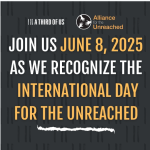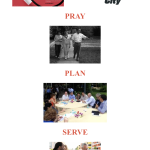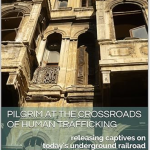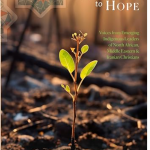Have you… or has your organization/church… begun focusing more (over the past couple of decades) in raising up new cross-cultural witnesses from nations in the Global South? If so, would you mind sharing… what does that look like, briefly? Upon what resources have you come to rely? How have you balanced the need to raise up go-ers with the need to raise up senders? (For more on this, for example, see this short video by Bevin Ginder: https://youtu.be/cGFgNHnzq0I.) If you know of a book or an angle on this, please click comment. We’re all ears.
9) How Will We Ever Mobilize Missions From the Global South?













How to encourage missionaries from the global south? Answer: do mission in a way that the the global south can do it. Cf. Luke 8 and 10; no extra tunic, no money to hand out, … etc. Leading by example …
Contact Dr. Amanda Dimperio-Davis for insights! She serves as director of Globalization and the program Global Missionary Partnerships at International Mission Board. She has fantastic ideas and advice. https://www.imb.org/2021/07/08/global-missionary-partners-vital-revelation-79-vision/
See https://www.gafcon.org/
The book in Spanish, Sirviendo al enviar Obreros, the White Paper, Un Fundamento Biblico (excepted from the book, The Reentry Team), the book in Portuguese, A Missão de Enviar, are basic training for missionaries developing a Partnership Team, the Senders of Acts 14. The book in Spanish, Prepárate para la Batalla, and the White Paper, Um Convite, in Portuguese, are basic training for all engaging in cross-cultural ministry! The books are available at eri.org at missionary pricing; the White Papers are free for copy and distribution without charge at the same website. The book, Serving As Senders, is also available in Arabic, British English, Chinese, Czech, Dutch, French, German, Indonesian, Italian, Japanese, Korean, Polish, Romanian, Russian, Sinhala, Swedish, and Tamil.
http://goimm.org/wp/where-we.html IMM runs missionary orientation courses across the Global South. They are part of WEC International who also run orientation courses in Mexico, and Brazil, and for Latinos in the USA and Canada. WEC also had a sending structure for Africans and holds various candidate courses across Africa. WEC has found that their unique structure and approach to finances is allowing workers from the Global South to flood their agency.
Pioneers (PI) Egypt is engaged in mobilizing, training, sending and supporting Egyptian & Sudanese church planters in Egypt & Sudan and to other countries. There are many from these Global South nations who are called and willing to take the gospel to the unreached among them and beyond, so we could use more senders!
Your co-laborer for Jesus, the Lord of the harvest — Bob Sayer, VP of International Initiatives, PI-US, and Board Chair for PI Egypt
Perhaps a better question would have been, “What can we all learn about the provision of member care for the Global South goers? In my mission a number of our key international member care leaders are from the Global South!
Although aspects of member care have now been around for decades the rapid embracing of member care has been mostly over the last decade plus. When we started member care training in Africa in 2007 our North American locations, for the most part, where still asking , “what is member care?” Awareness at that time and much earlier seemed only among those teams sending long term workers into the frontiers.
As our course spread from Southern Africa to East Africa we found several independent member care providers already working across new sending agencies in Kenya. In 2004 when we shaped our outline for providing member care it was due to sitting on location with African cross-cultural missionaries. The content, context, and understanding for the member care need that underpinned our model came out of traveling in Africa, listening to their stories, and working within their frameworks. At that time 286 of 304 missionaries in South Central Africa were themselves African. It was primarily from the African missionaries we learned our ministry, community concepts, and shaped our responses.
As I see it, the member care development in the past decade or so morphed out of missions with a concern for pastoral care, personnel, and mental health. Our mission’s teams and new-sending-agencies’ teams of the Global South did not have the later two. As such, I believe that is some ways the Global South has been more intense on applying biblical principles of care within their teams, while much from the West is still depending on specialists, secular studies and other programs.
Where there is yet a lack of member care in the Global South, the horrific stories of the need for member care match the stories that have also come from such lack of care among Western missions. The good news is that as a whole the Global South is learning quicker, adapting to their own contexts, are integrating member care more within their teams, and are not so dependant on the professional care giver, preferring more to see member care within their holistic relationships.
The original question about provision of member care may be from Western/Northern perspectives that depend on the professionals. I hope I am not overlooking our globalizing world and the awareness of common needs which member care at large does address, but I think the Global South preference for preventative member care and integrating the “one-another’s” of Scripture into the daily life of the missionaries actually lowers the cost of such provision.